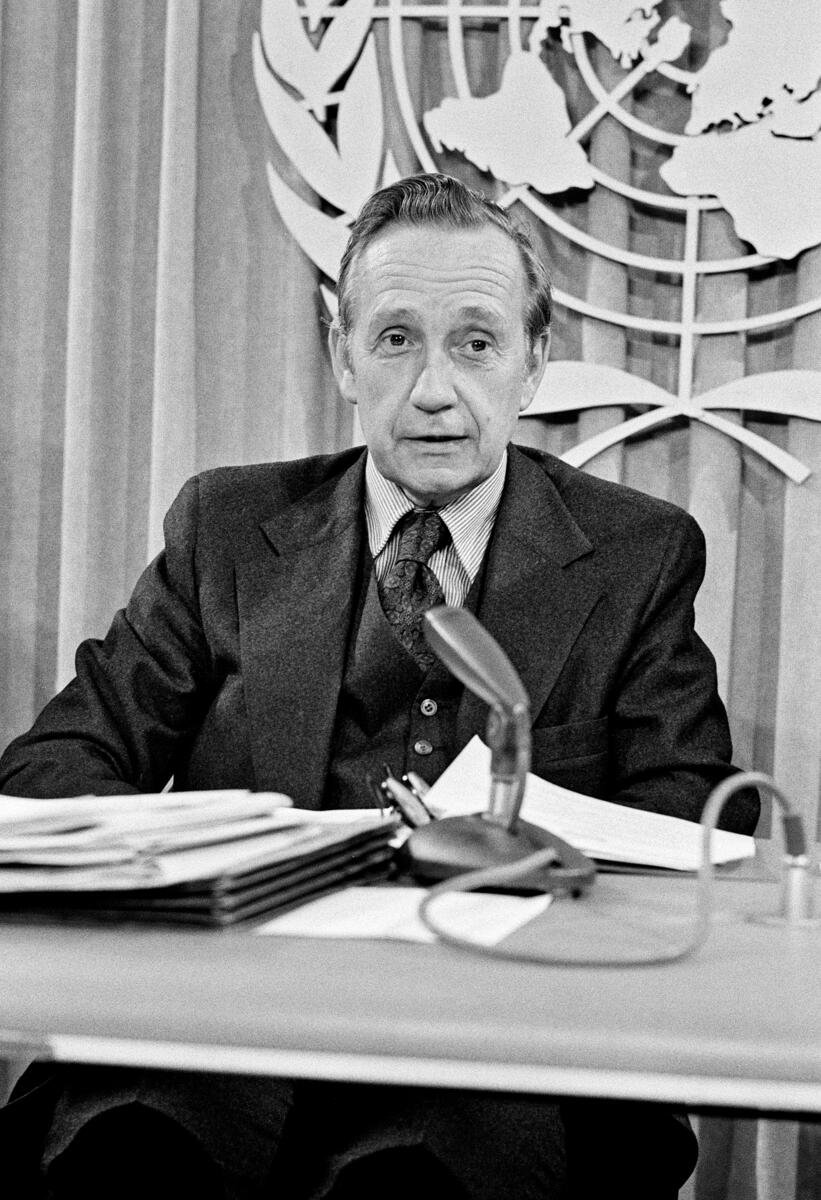|
A giant of international relations and universal peace has left us
By Ok Pannenborg, UNA-NCA Advisory Council
Last Saturday one of the most consequential leaders of the world’s international system in the 20th century passed away at the venerable age of 101. Brian Urquhart arguably was the most accomplished global peace arrangement implementor the world had in the second half of the 20th century and may well join the historical pantheon of the great and the good, next to presidents, economic and social leaders and thinkers, world religious leaders and philosophers and kings.
While most of these were or are national or issue-specific protagonists who achieved global recognition, Urquhart was a global leader by nature. As the number two at the U.N. for many years, he was seen and respected as a shepherd of the world’s international order and system, as a global representative of the world community.
While he was born British, he became the quintessential universal leader whose nationality and origin were felt to be irrelevant. His early joint learning experience with Indira Ghandi whom he was in class with at primary school gave him an early feel for the diversity of perspectives that would guide the shape and reach of the international system following the Second World War and emergence of the newly independent states from colonial rule.
Brian Urquhart’s significance lay in his unparalleled ability to implement and bring to fruition the newly minted values, norms and standards embodied in the multitude of United Nations’ treaties, conventions and arrangements. Recalling the unique importance of conceptualizing and elaborating the new world ideas, postulates and standards agreed upon in the charters and covenants of the United Nations by such luminaries as Cassin, Malik, Chang, Falk, Myrdal, Röling, Abi-Saab, Galtung and many others, it was Urquhart who subsequently became the prime mover to actually translate these into practice in the real world of major conflict, national political contentions and geopolitical risk.
Concepts such as universal peace, individual or collective self-defense, equal rights and self-determination, prohibition of use of force, non-intervention in domestic affairs, war crimes, and human rights and fundamental freedoms are all lofty ideals and currently globally accepted standards, they can remain distant in the letter of international law if not actually applied and regionally, nationally or locally enforced: it was here that Brian Urquhart set the gold standard and showed that these had meaning in the real world and should and could become an integral part of a more peaceful and better human condition.
His military experiences in WW II, his sense of humor in combination with his phlegmatic calm in crisis, his irreverence and his understatedness guided his successes in lowering temperatures and successfully preventing conflict and war from the 1950s into the 1980s in the Middle-East (Suez, Lebanon, Cyprus, Sinai, etc.), Africa (Congo/Katanga, Namibia, etc.), Asia (Kashmir, etc.) and many other places, all the while overseeing the U.N.’s peace-keeping forces and their deployment (the U.N. ‘blue helmet’ was among his ideas to ensure they could be distinguished from other forces).
Appropriately, his work and approaches on behalf of the greater good and interests of the world community as a whole, as brought together under U.N. auspices, were recognized by the awarding of the Nobel Prize in 1988 to the U.N. Peace Keeping Forces.
As students and practitioners of the principles of the United Nations and its Associations around the world -and in particular our U.N. Association here in the U.S. Capital Area- we will miss Brian Urquhart as our shining light of ‘can do’: while continuing to further develop deeper and better understanding and codification of U.N. ideals and values, we will remember him for a long time to come as the best 20th century champion for implementing these principles in practice among all conflict parties involved, with understanding, humor, tolerance and flexibility but equally with determination and mutual-interest-convincing, for those communities whose well-being and future often is dependent on their actual application.
See BBC radio piece by Mark Mallock-Brown here (45.00 minutes in).










